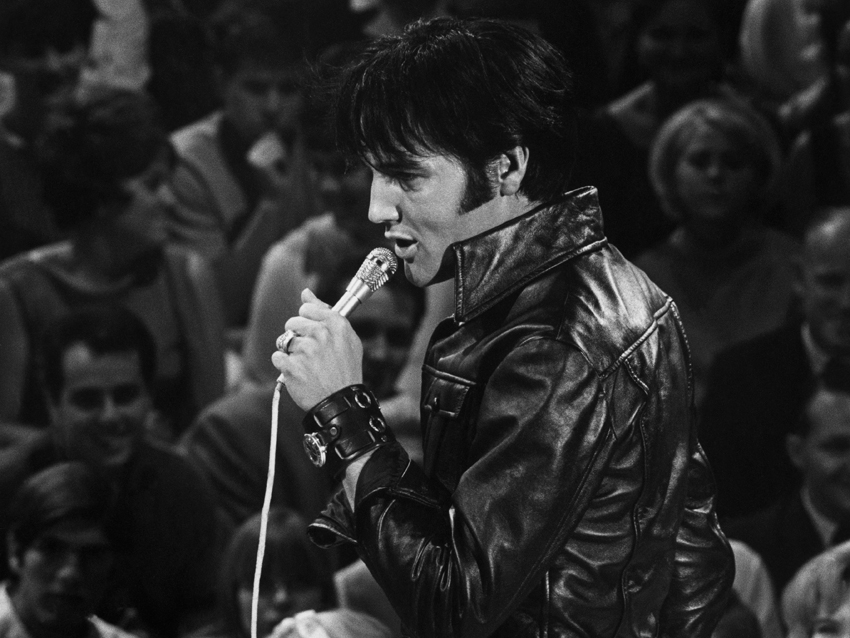
Elvis Presley
In 1968, it had been a long time since Elvis was relevant, mainly because a bunch of Liverpudlians calling themselves The Beatles had rendered his Hollywood schmaltz-fest yesterday's news.
He needed something special, and that something turned out to be the legendary ’68 Comeback Special, a TV event that saw the King reclaim his crown. Admittedly, it still had its fair share of cheesy moments, but there’s no denying Presley’s charisma, voice or song choices when he gathers together a few pals with acoustic guitars to play in the round.
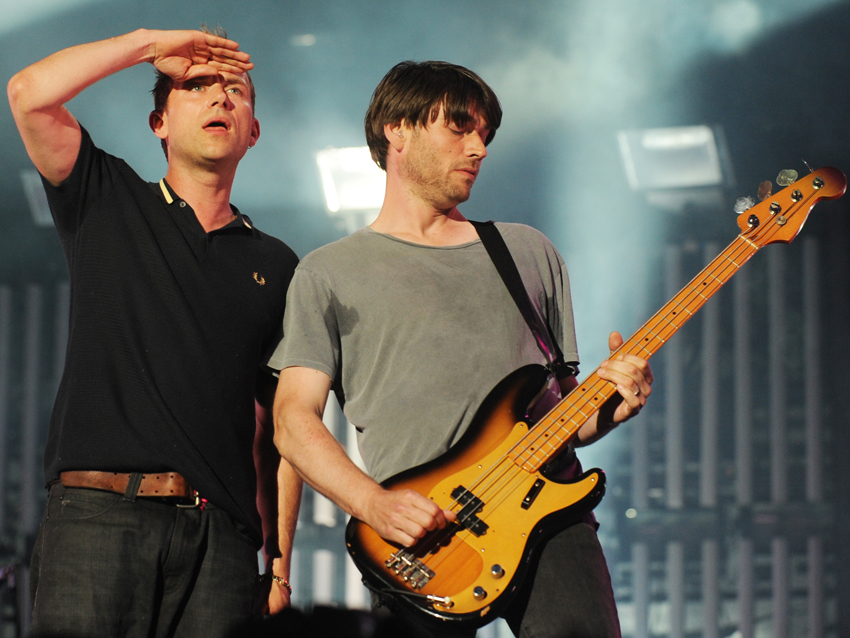
Blur
It was June 2002 that Graham Coxon walked away from Blur, and though the band went onto release 13 without him, his presence was sorely missed.
Cue a few years of endless Damon Albarn side projects and a startling new career choices from the rest of the band, including farmer and cheese enthusiast (Alex James) and solicitor/attempted politician (Dave Rowntree), and things were looking bad for Britpop’s finest.
Until 2009 that is, when the original line-up reformed for a triumphant and highly emotional Glastonbury appearance that confirmed their position at the top tier of the UK’s greatest bands. Hooray for Blur.
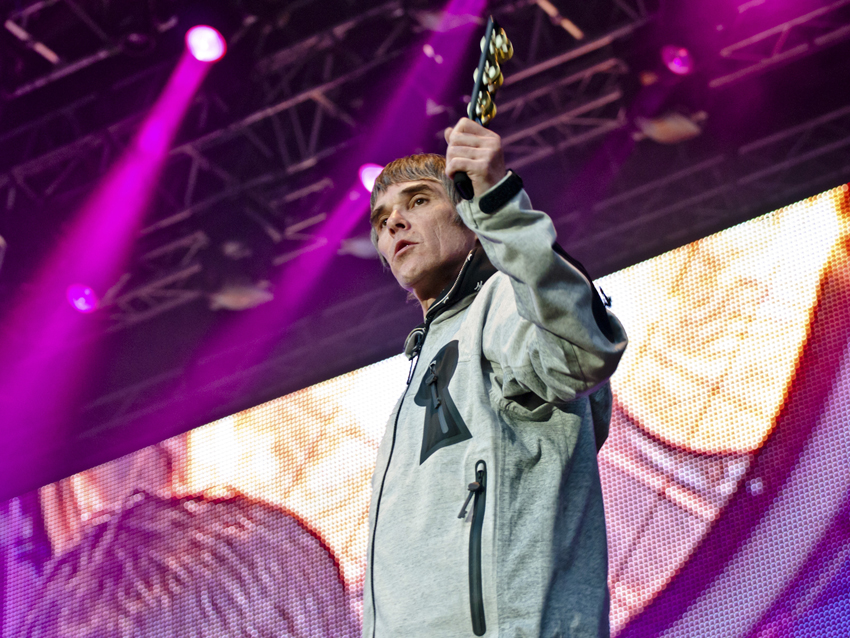
The Stone Roses
It wasn’t supposed to happen. Nobody seriously though it would After so many years of rumours - and in John Squire’s case, slightly odd art-statements of flat out denial – the Stone Roses, the great lost guitar band who burned bright in the early ‘90s, reunited.
And it was glorious: massive gigs to vast audiences who couldn’t believe their eyes, widespread acclaim and the promise of new material. There aren’t many reformed acts that generate the sort of excitement the Roses have since getting back together. Adore them.
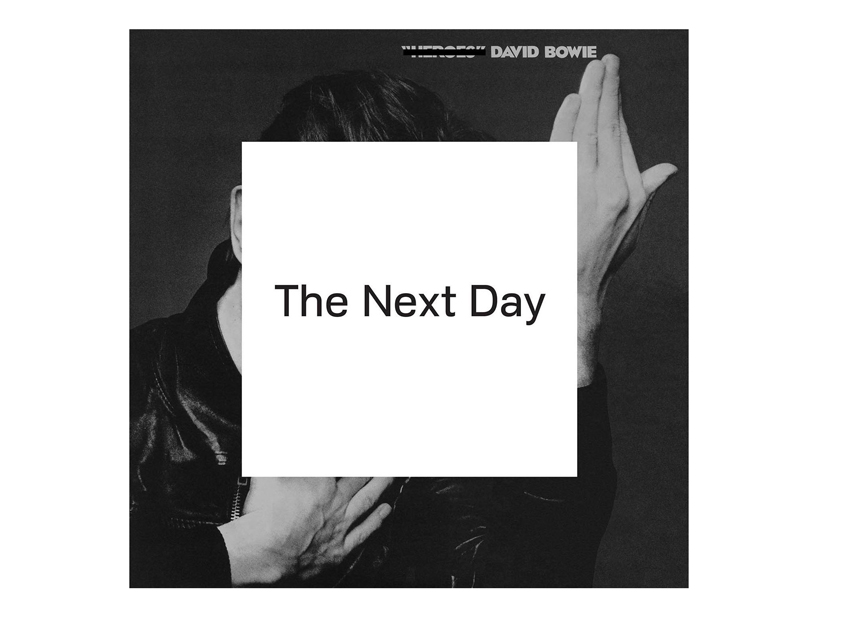
David Bowie
It’s entirely possible that nobody – David Bowie included – realised how much the world would miss him until he quietly disappeared from the international stage.
So when, like a bolt from the blue, he released sublime single Where Are We Now? in 2013, closely followed by album The Next Day, the world went Bowie bonkers. We haven’t quite recovered yet, and although the shock hasn’t settled, there’s no doubt it’s //good// shock.
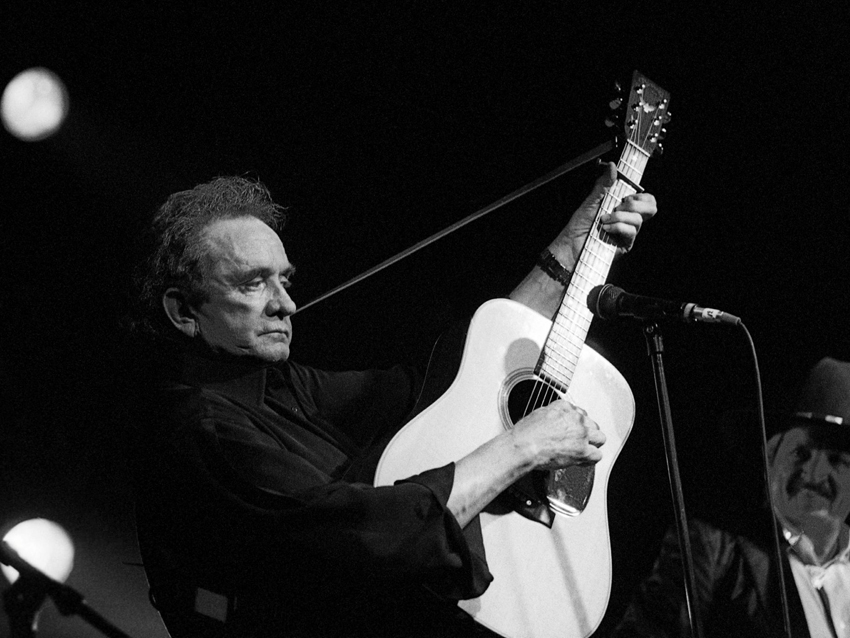
Johnny Cash
Johnny Cash’s fortunes had been a mixed bag in the ‘80s, his formerly brightly burning star diminished to something not befitting his status as a legend of country and early rock and roll.
It took Rick Rubin to resurrect the career of the man in black. Stripping back Cash’s sound to voice and guitar and selecting covers by modern artists, the Rubin-produced American Recordings album kicked off a late-career resurgence for Cash that was pretty much unprecedented. A six-album series later, Cash passed away having given a new generation a reminder of his fierce talent, his reputation restored the glory it deserved.
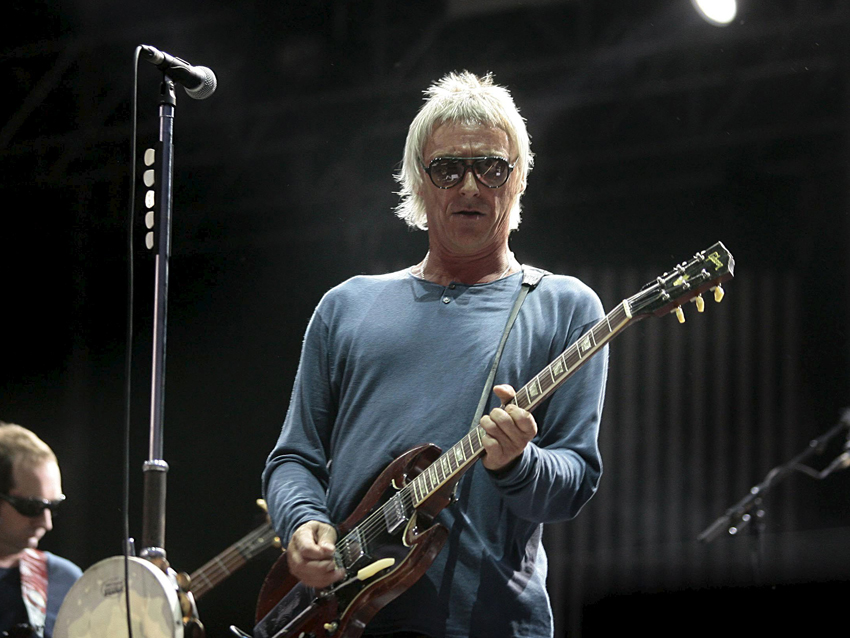
Paul Weller
After breaking up The Jam at the height of their success and then baffling his Mod fans with The Style Council, the early ‘90s found Paul Weller at something of a loss.
Building a new career as a solo artist from the ground up, he gradually built a momentum that happily coincided with the Britpop boom. 1995’s Stanley Road put The Modfather back where her belonged – at the top of the charts.
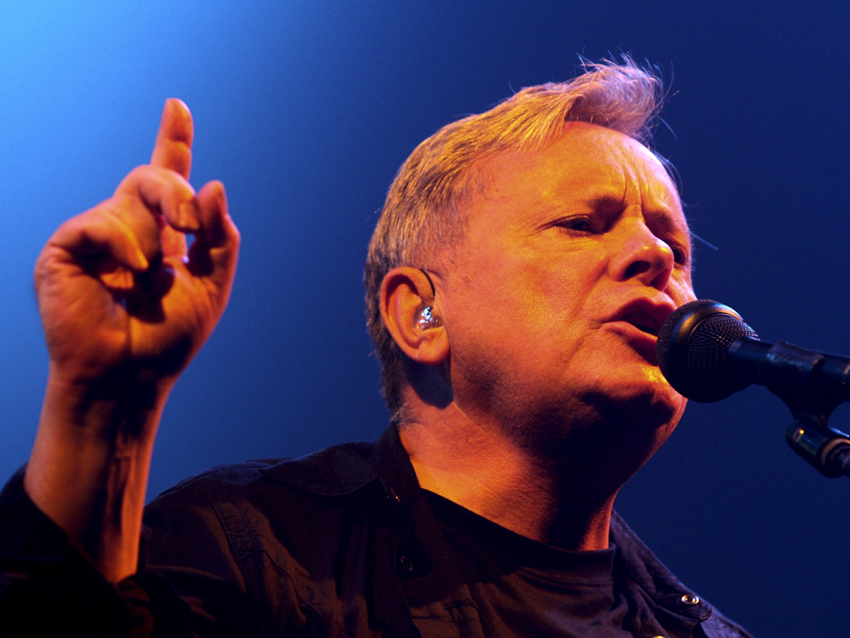
New Order
Overcoming the death of a band member – especially one in circumstances as tragic as those that surrounded Joy Division singer Ian Curtis – is no easy thing for any group to overcome.
But when New Order emerged from the ashes of Joy Division, no one could have quite anticipated the levels of success that Bernard Sumner and co would go on to achieve. Quite apart from forging a new synth-led sound, record-breaking single Blue Monday propelled New Order into the stratosphere, with commercial success a million miles above and beyond the cult status they had achieved as Joy Division.
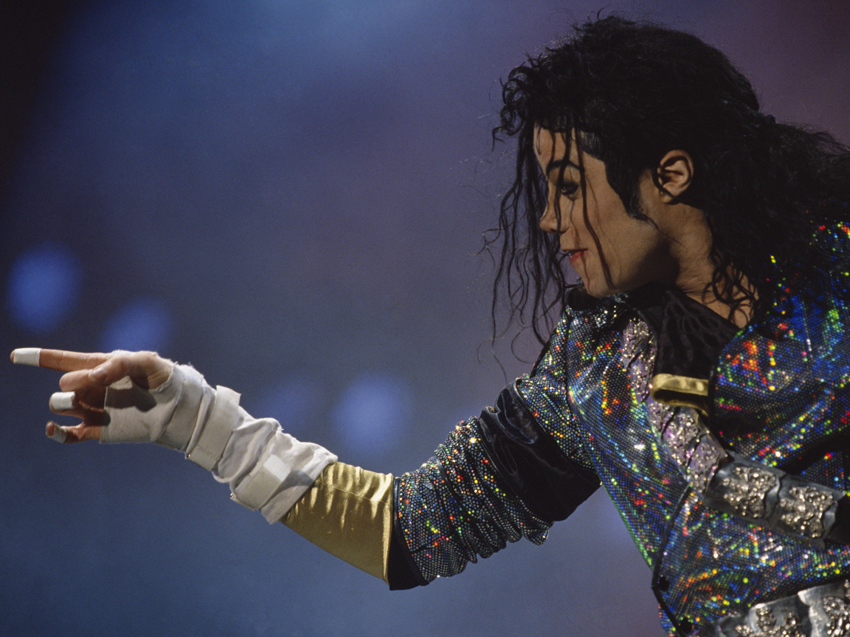
Michael Jackson
With the Jackson 5 all but dead in the water and his recent attempts at Hollywood stardom – with a role in disastrous musical The Wiz in 1978 – Michael Jackson didn’t look the safest bet for megastardom.
Enter Quincy Jones and Off The Wall, MJ’s debut solo album that launched him off in an entirely new trajectory as the Prince Of Pop. The next ten years were to be some of the most successful any artist ever experienced.
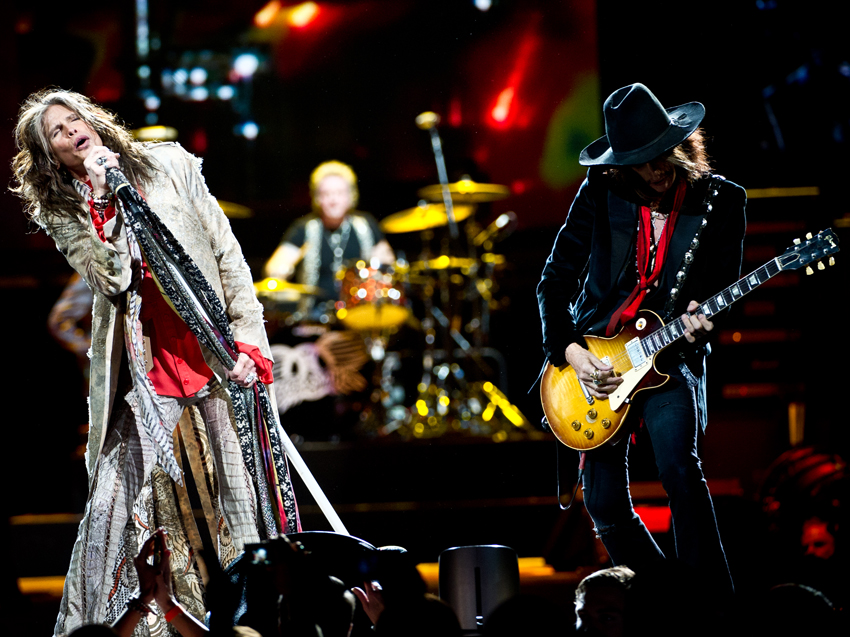
Aerosmith
The '80s didn’t begin well for Aerosmith. Having established a huge fanbase and racked up a run of hits in the late ‘70s, the usual rock band clichés of drugs and ego pulled the band apart, with guitarists Joe Perry and Brad Whitford leaving Steven Tyler to his own devices by ’81.
Lean years followed for the ‘smith, and it wasn’t until Perry and Whitford returns in ’84 that things began to look up. 1985’s Done with Mirrors suggested a fresh start, but it was the legendary, genre-blending collaboration with Run DMC in 1986 that put them truly back on the map. Sufficed to say, the rest of the decade went pretty smoothly…
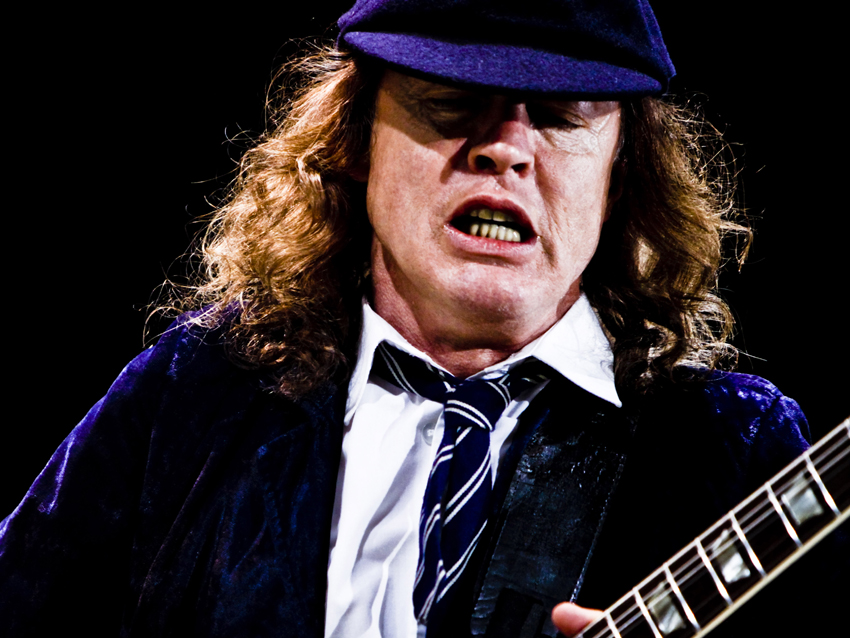
AC/DC
Magnetic frontmen with voices like thunder aren’t exactly ten a penny, so when AC/DC singer Bon Scott tragically died in 1980, things weren’t looking too good for the hard rock outfit who had experienced such success in the ‘70s.
Until, that is, English howler Brian Johnson stepped into the frame. Picking up where Scott left off, the reinvigorated band recorded Back In Black, one of the greatest rock albums ever, and began a new phase of world domination.
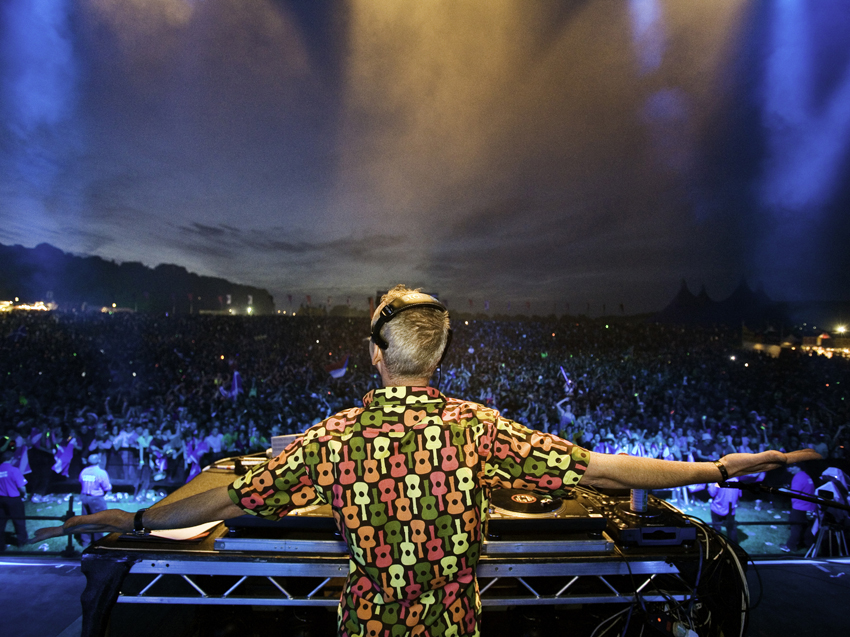
Norman Cook
First rising to prominence as the bass player of Hull’s finest jangle-tunesmiths The Housemartins in the mid ‘80s, Norman Cook’s burgeoning pop career looked to be over when the band called it quits in ’88.
Playing with various outfits throughout the early ‘90s (including Freak Power, who had a minor hit with Turn On, Tune In, Cop Out in 1994), it wasn’t until he reinvented himself as superstar DJ Fatboy Slim in 1996 that he fully realised his ambitions of global stardom.
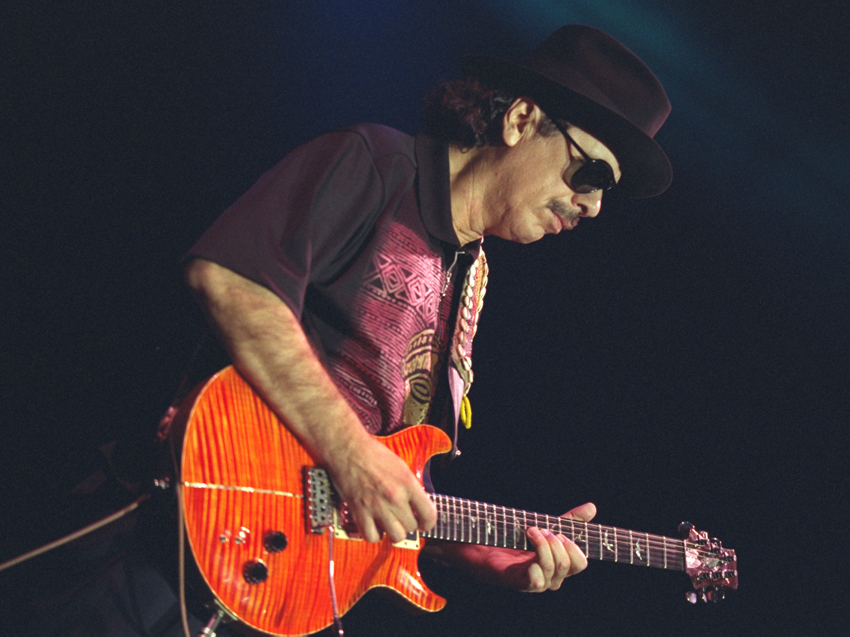
Carlos Santana
Stalling commercially in the ‘90s, guitar hero Carlos Santana looked to be flat out of luck, unable to connect with modern audiences and left with few prospects.
But in 1999, he pulled together an all-star cast that included Dave Matthews, Lauryn Hill, Eric Clapton and Matchbox Twenty’s Rob Thomas to record Supernatural, an album that won more Grammys than any mantelpiece could hold and shifted north of 15 million copies. Not a bad day at the office, all told.